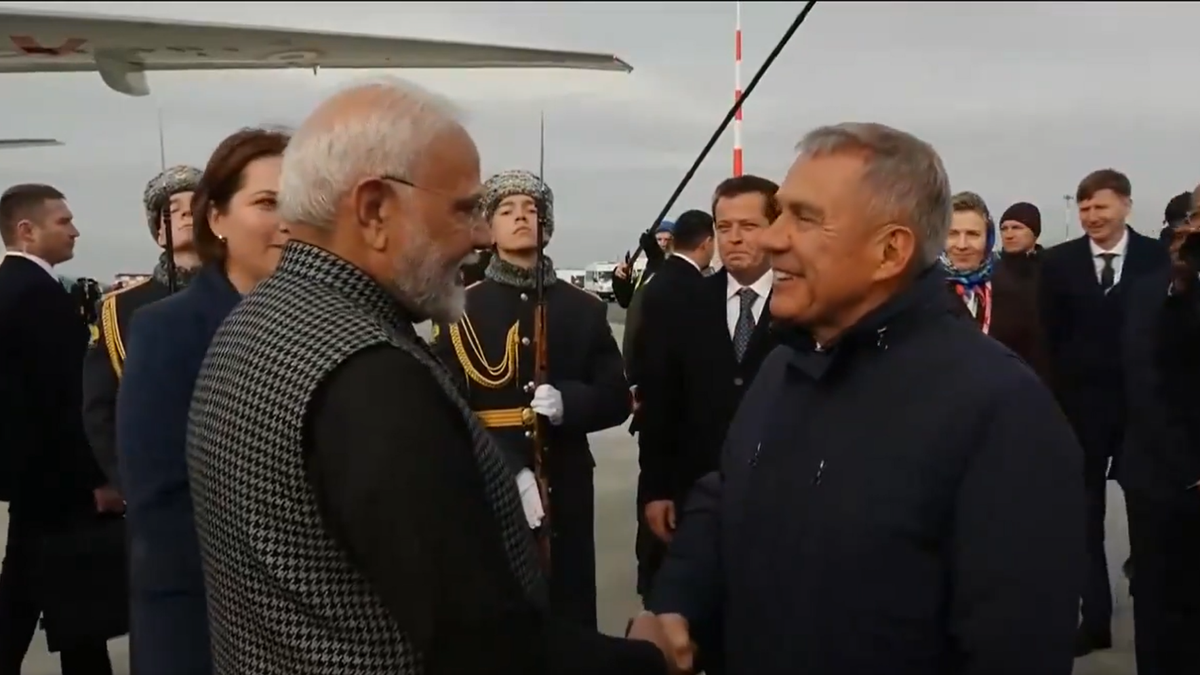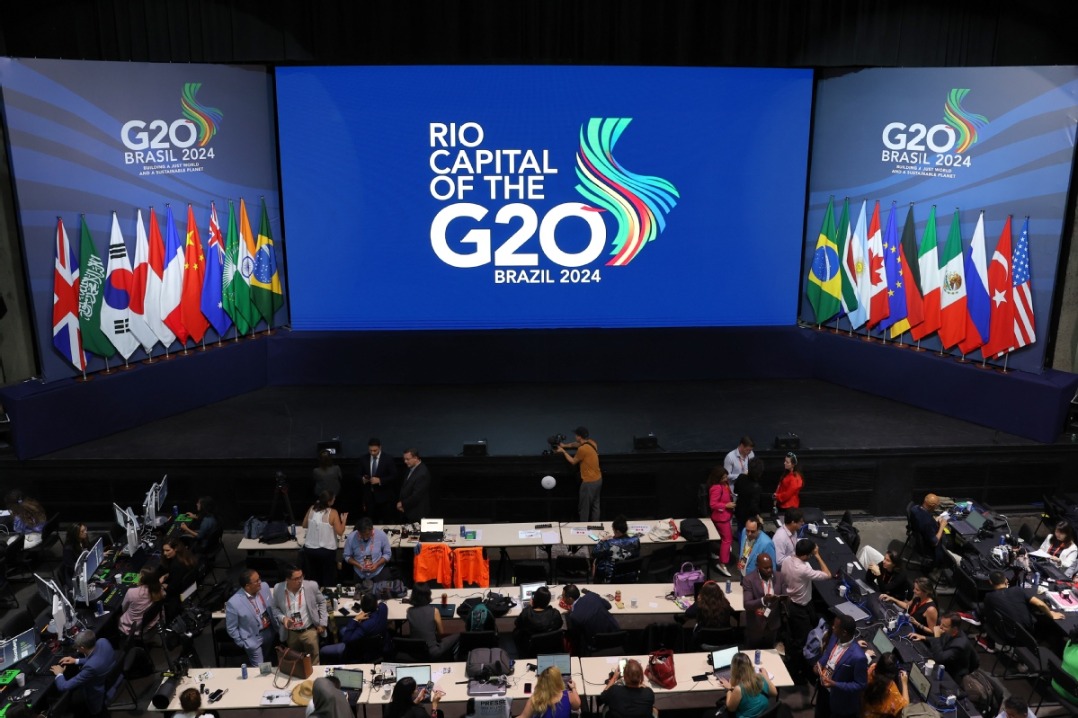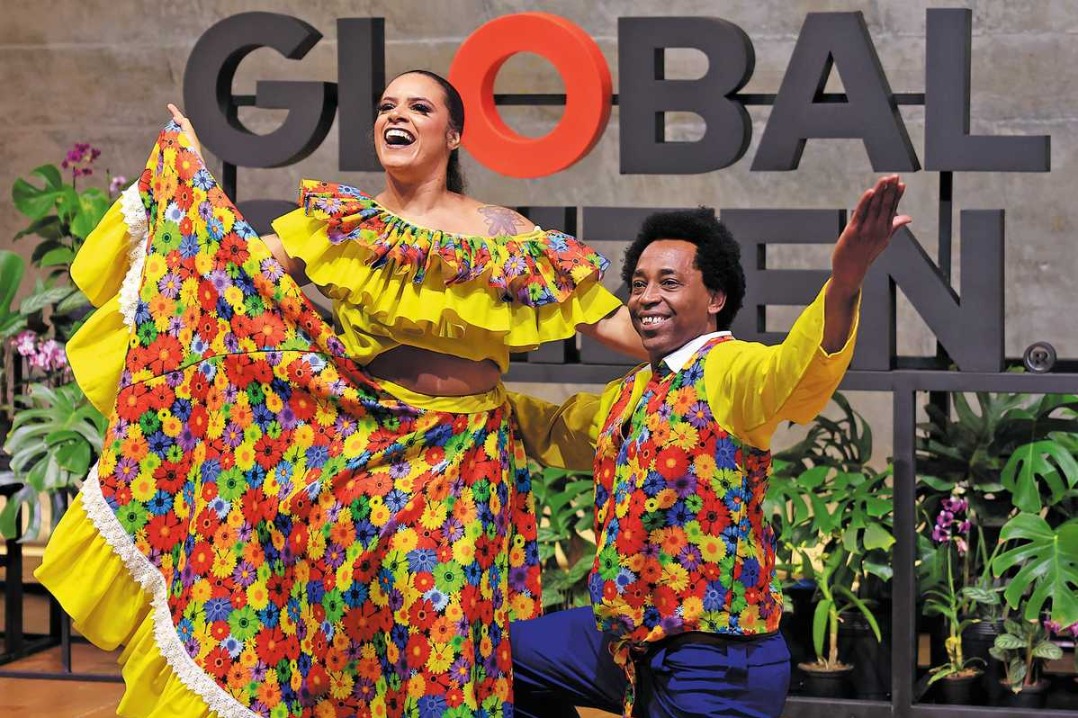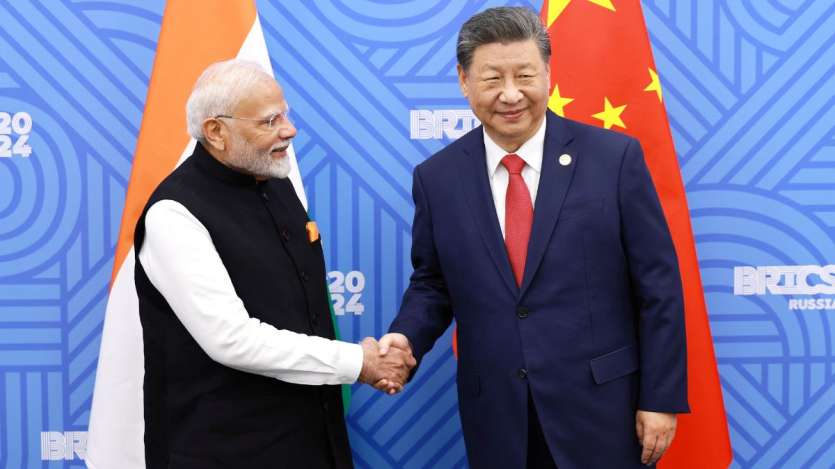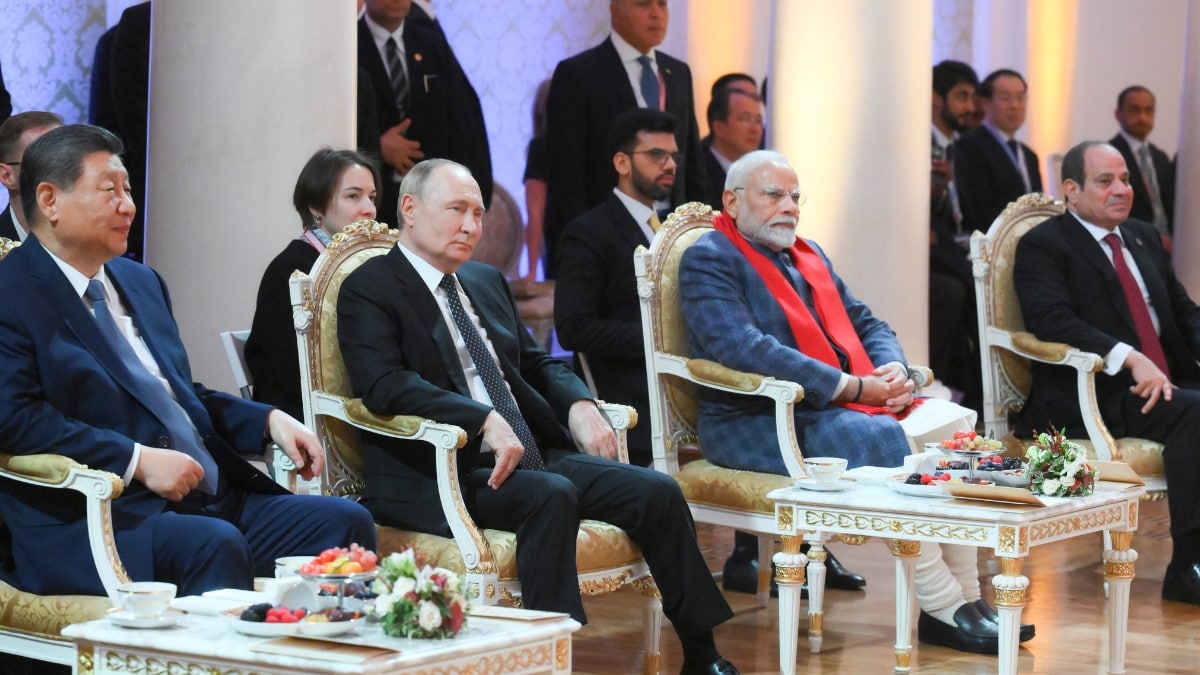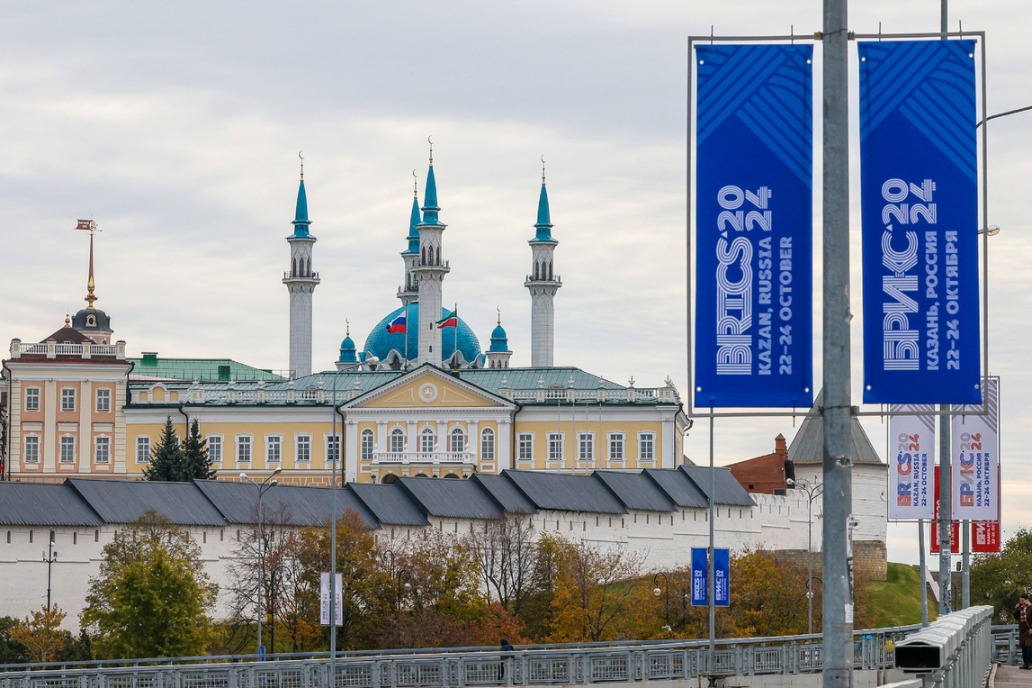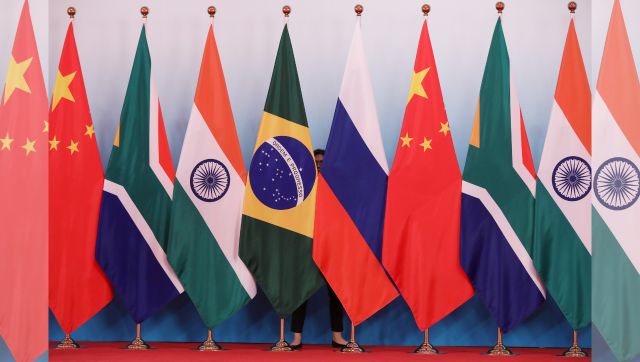)
Johannesburg Summit: Why consensus must be built within BRICS on expansion
FirstpostThe 15th BRICS summit in Johannesburg from 22 to 24 August is being held in the background of many international developments: The conflict in Ukraine, its impact on the Global South, the collapse of ties between the West and Russia, Western sanctions on Russia that have disrupted ties of third countries with it, the sharp deterioration of US ties with China, the global trading system under stress with the weakening of the WTO and de-globalisation trends that include exploring more reliable and trustworthy supply chains, and so on. The Summit will have major issues on its agenda, including expansion of membership, the criteria for doing so, increasing cooperation within the Global South and reshaping the global political and economic architecture to benefit developing countries, trading in national currencies amongst BRICS countries as a move towards de-dollarisation of trade exchanges, the potential for creating a BRICS reserve currency, reform of the global governance institutions, promoting a more multipolar world, attainment of the 2030 Agenda on Sustainable Development, and so on. As the second largest global economy, the biggest manufacturer and exporter, possessing huge financial resources, the founder of the Asian Infrastructure and Investment Bank to rival the Asian Development Bank, the biggest shareholder of the New Development Bank set up by BRICS, leveraging its Belt and Road Initiative to strategically expand its economic and political influence globally, aspiring BRICS members expect to benefit economically and financially from being part of this grouping, apart from geopolitical hedging against the West’s dominating role in global governance. Russia too would favour BRICS expansion as it would weaken the grip of the West on the international system, make it more difficult for the West to impose its will and decisions on other countries, provide alternative sources of funding for development, blunt the instrument of sanctions, promote greater dispersion of power at the global level, leading, in turn, to a more multipolar world.
History of this topic

BRICS: A Gateway to a Brighter Future for the Global South
China Daily
BRICS: A Counterweight to G7 Rich Nations
New Indian Express
BRICS: A Counterweight to the Global Powerhouse G7
New Indian Express
PM Modi to Hold Bilateral Talks with BRICS Leaders in Kazan Summit
India Today
BRICS: A Beacon of Hope for the Global South in a Volatile World
China Daily
BRICS: A Beacon of Hope for the Global South in a Volatile World
China Daily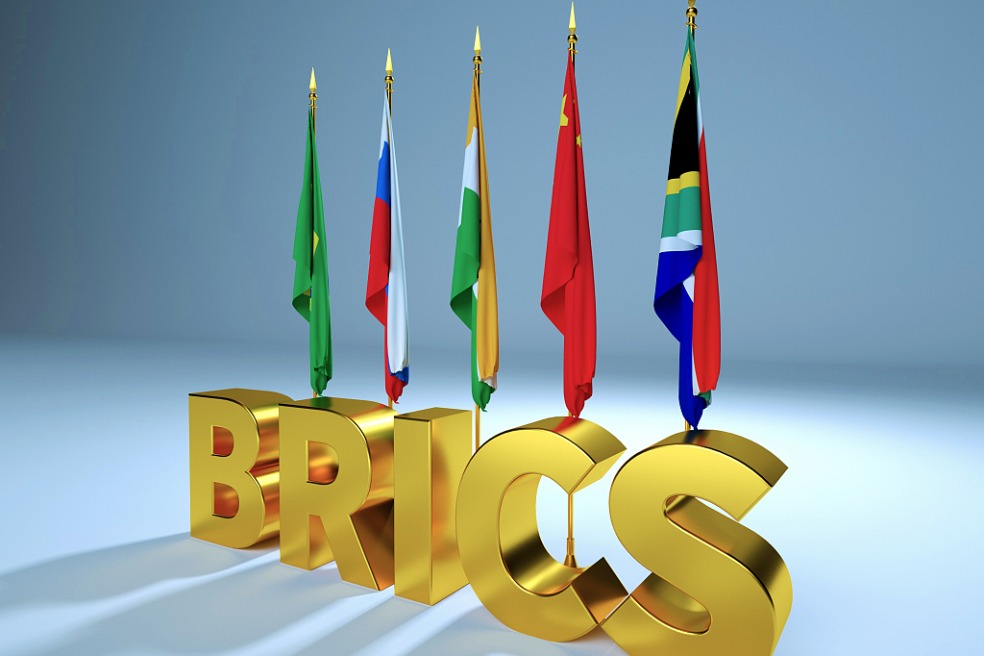
BRICS Embraces a New Era of Unity and Self-Improvement for the Global South
China DailyNationally focused NGOs ‘will be priority at BRICS-Civil’ meet in July
The Hindu
BRICS: 5 countries officially join Group of Emerging Nations
Live Mint)
BRICS Expansion: Five including Iran, Saudi Arabia & UAE join bloc
Firstpost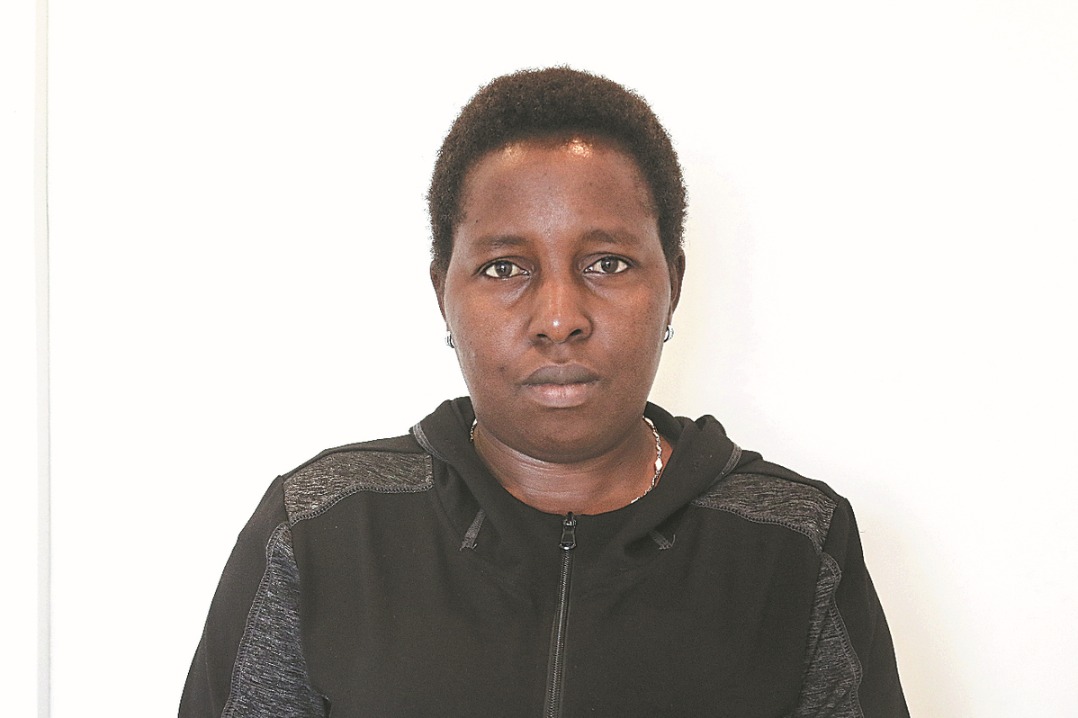
Bloc key platform for cooperation among economies
China Daily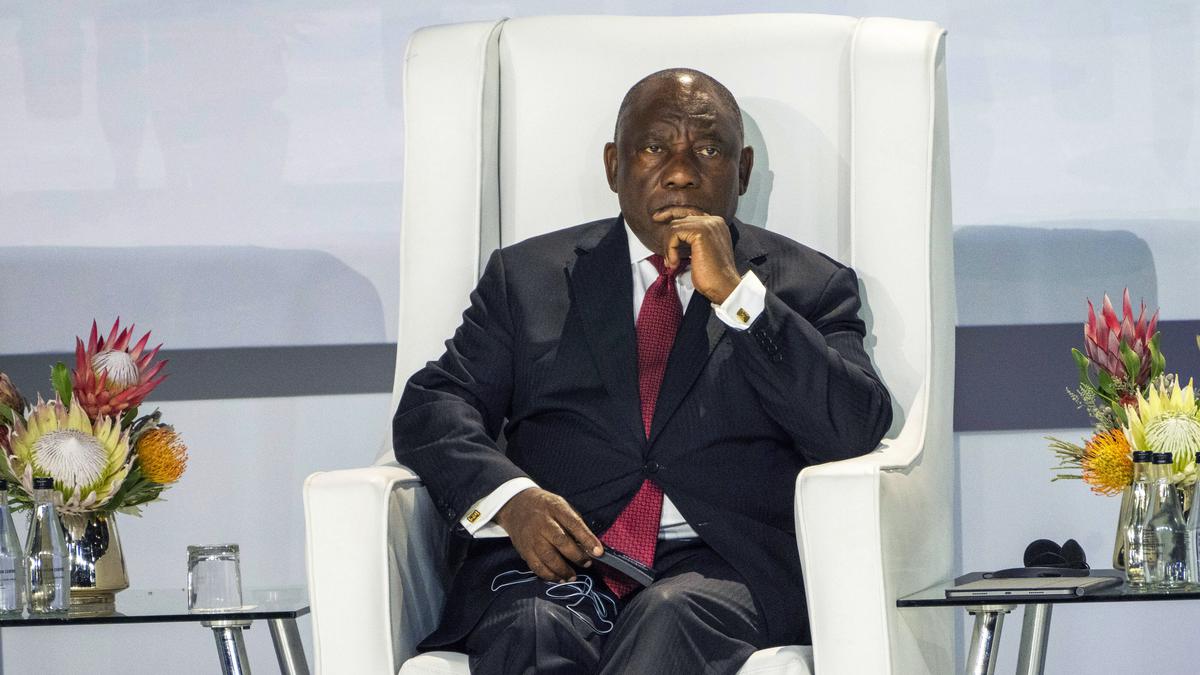
South Africa to host BRICS summit on Israel-Hamas war
The Hindu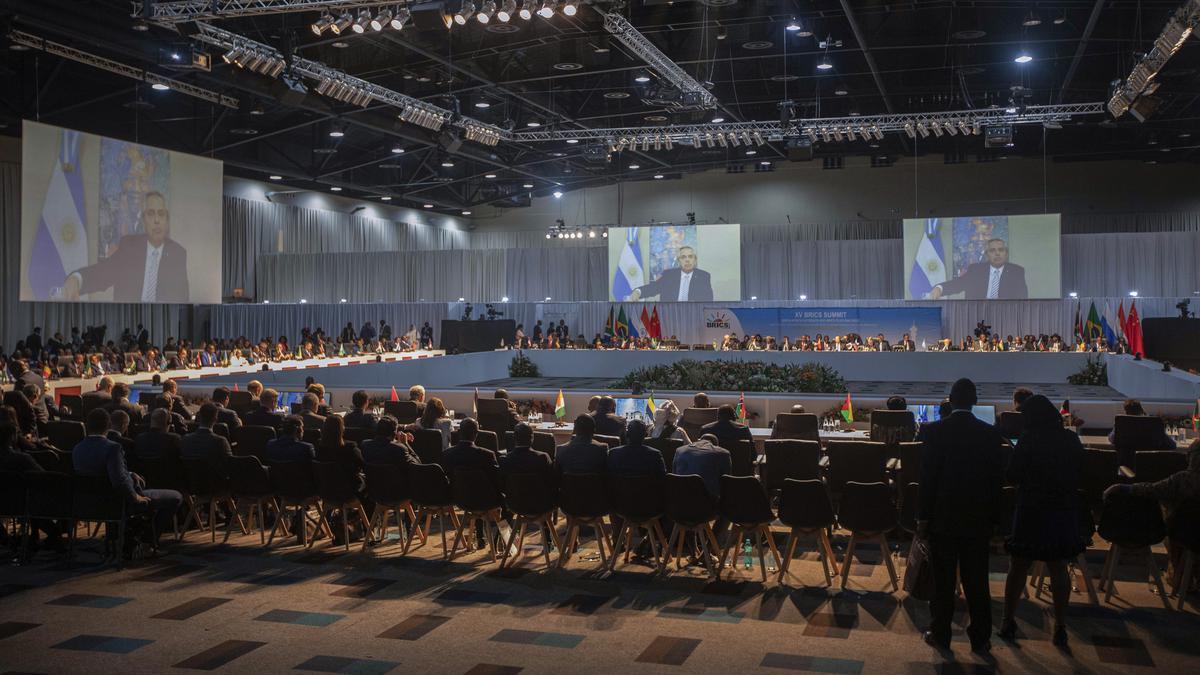
The implications of the expansion of BRICS
The Hindu
Johannesburg summit a historic milestone in Global South unity
China Daily
Johannesburg summit a historic milestone in Global South unity
China Daily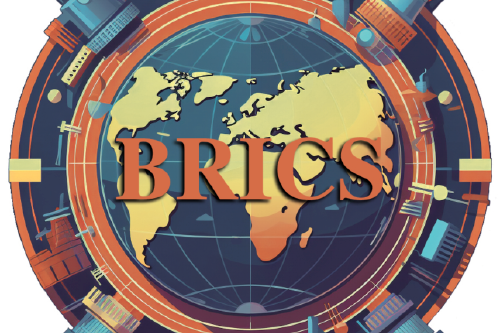
Expansion shows importance of BRICS
China Daily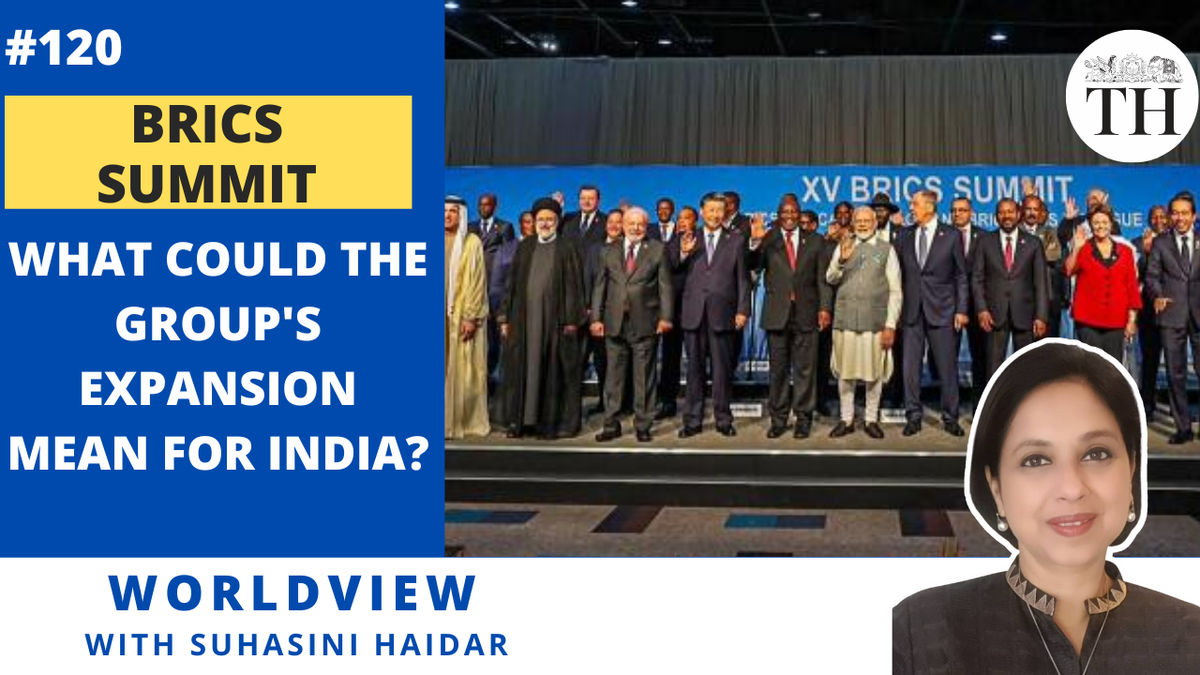
Worldview with Suhasini Haidar | BRICS Summit | What could the group’s expansion mean for India?
The Hindu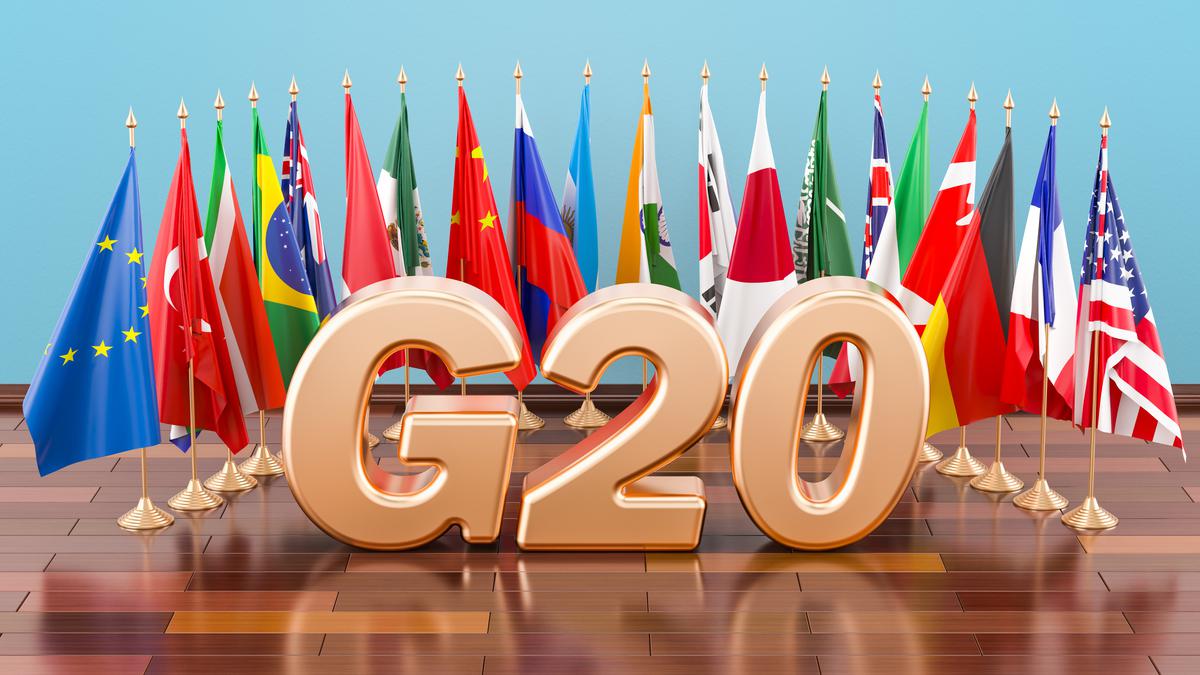
India’s G-20 opportunity for an African Renaissance
The Hindu
BRICS to Add 6 New Members
Deccan Chronicle
“Global South is not just diplomatic termâ€: PM Modi at BRICS event
Deccan Chronicle
BRICS 2023: PM Modi bats for ‘multipolar world’ at summit. Top quotes
Live Mint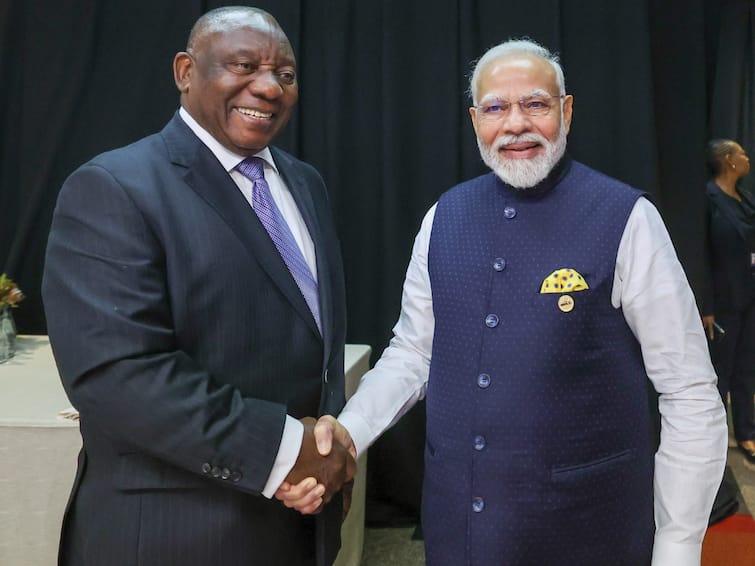
BRICS Countries Should Work Together To Strengthen Multipolar World: PM Modi At BRICS Summit
ABP News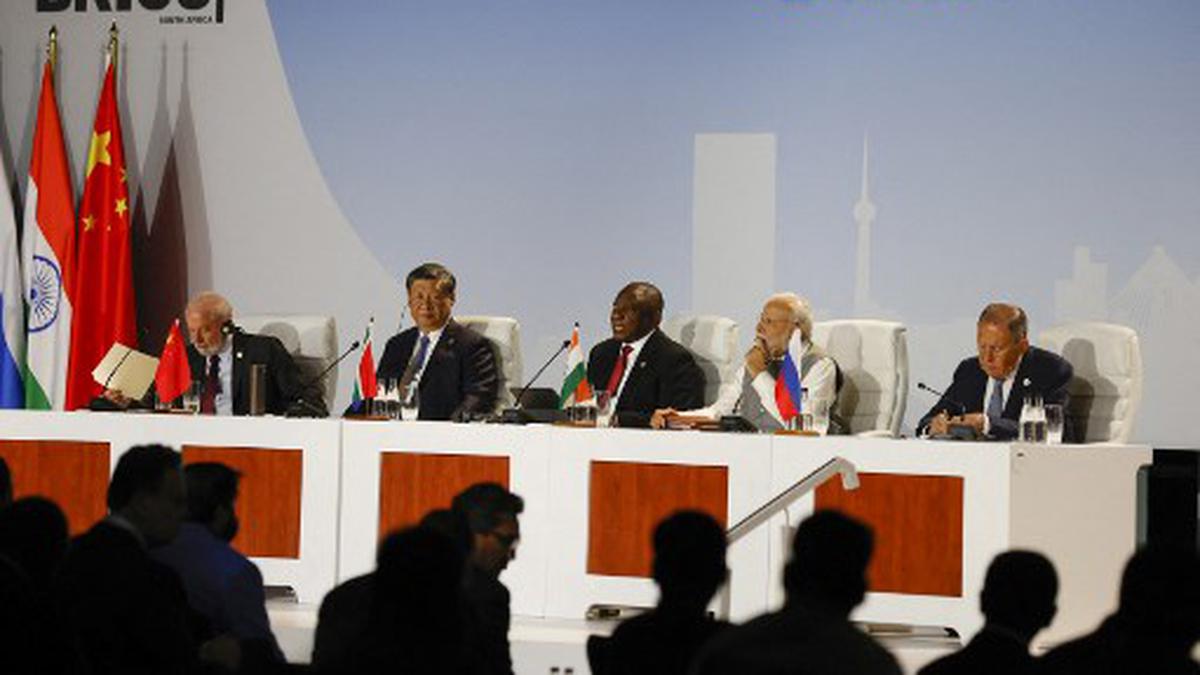
BRICS agrees to welcome six new members, says PM Modi
The Hindu
BRICS Summit: PM Modi pictured having brief conversation with Xi Jinping
Deccan Chronicle)
Six new building blocks added to BRICS
Firstpost
BRICS set to invite Saudi Arabia to join the bloc
Live Mint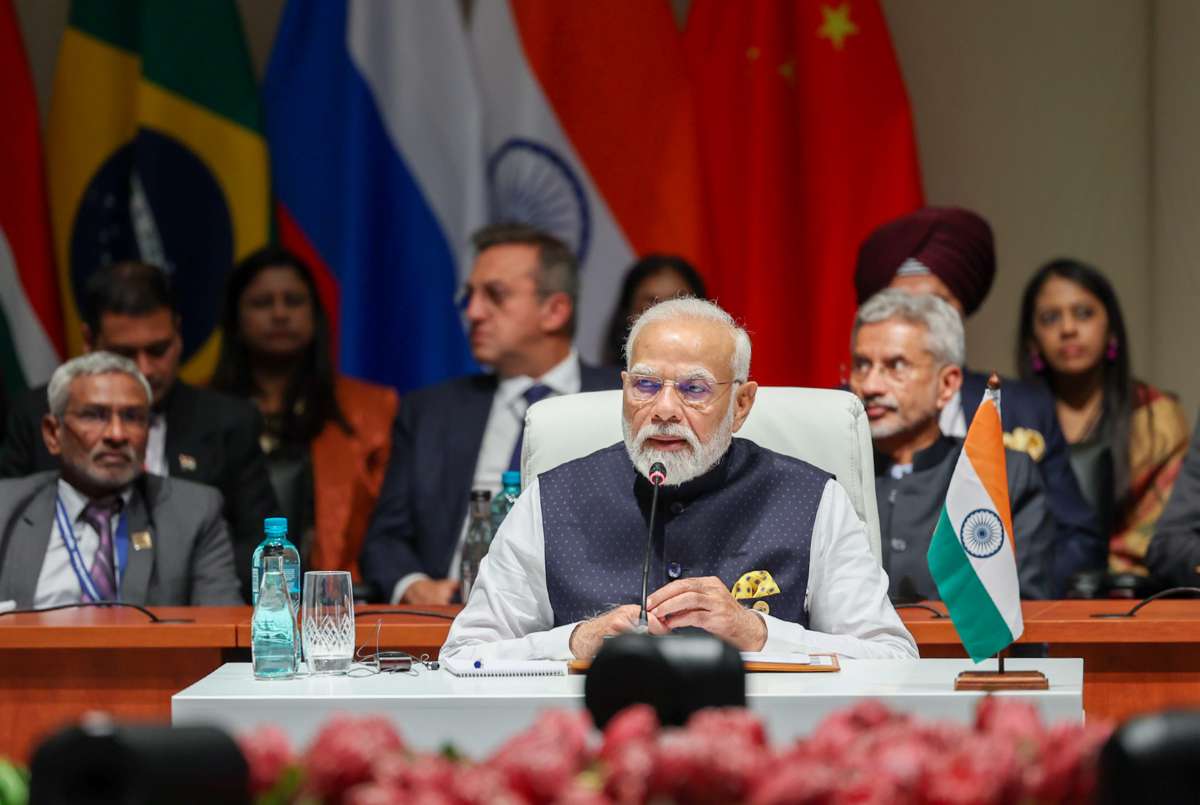
BRICS Summit: PM Modi to hold multiple bilaterals with member nations but all eyes on India-China talks
India TV News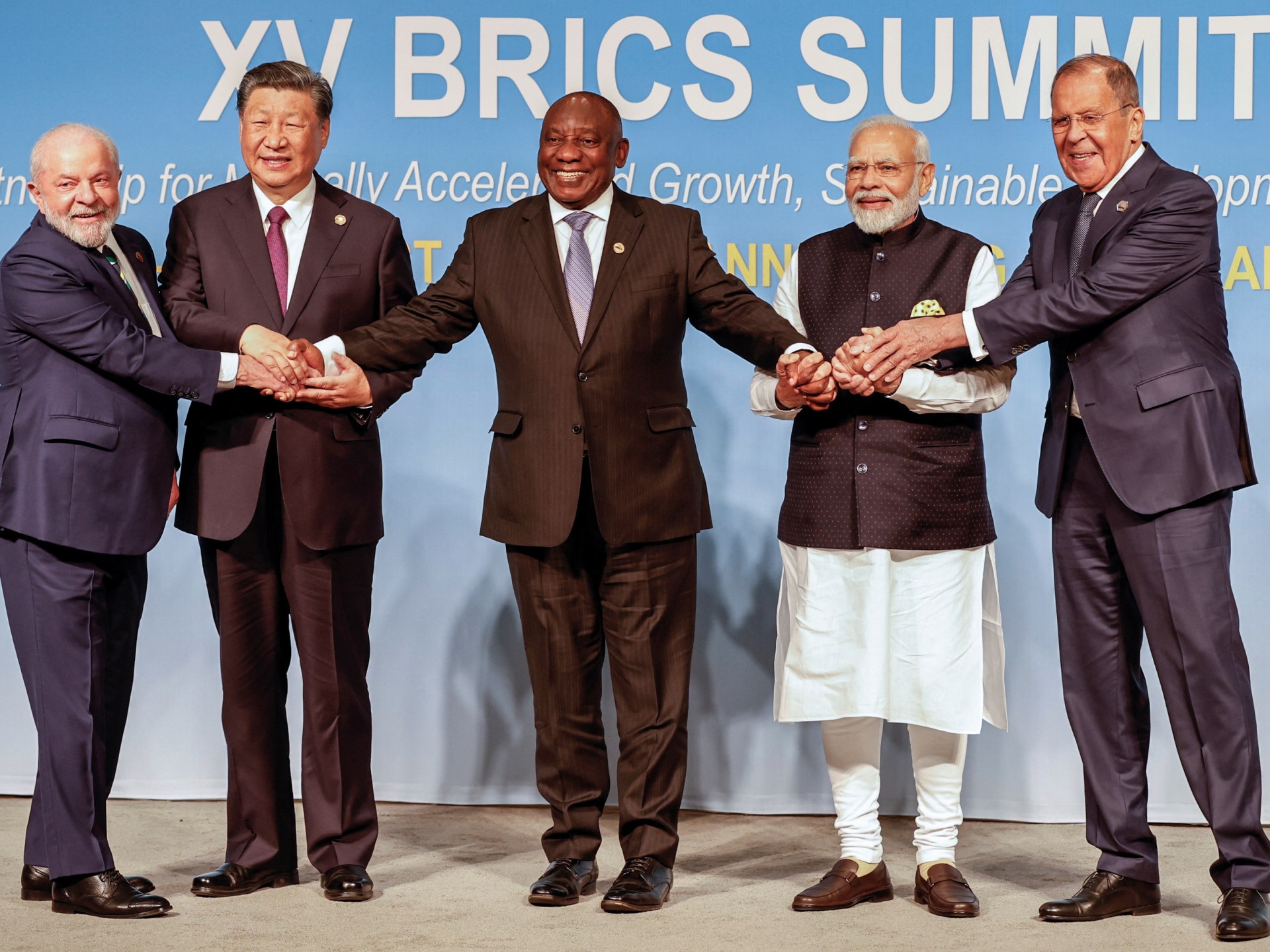
Saudi Arabia, Iran among six nations invited to join BRICS
Al Jazeera
PM roots for Brics expansion
Deccan Chronicle
PM Modi backs BRICS expansion, calls for consensus based move
Live Mint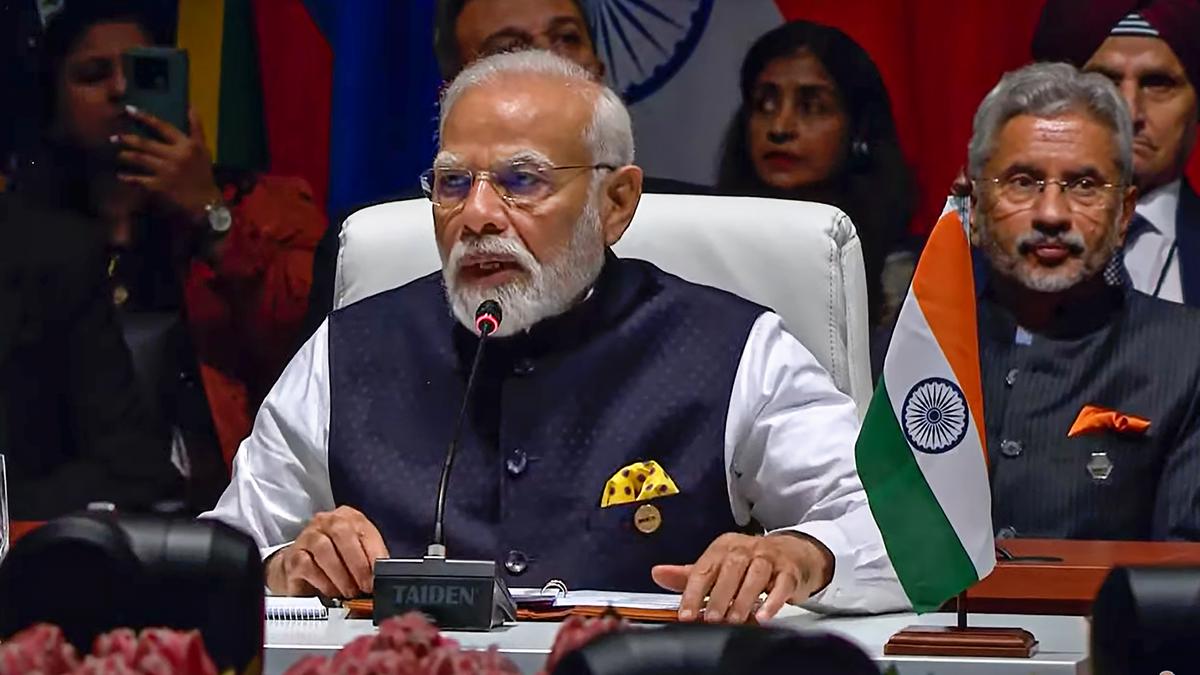
India welcomes consensus-based approach to expand BRICS: PM
The Hindu)
PM Modi hopes BRICS will support India's bid for permanent G20 membership to African Union
Firstpost)
BRICS Summit: Russia wants to end 'war unleashed by west,' says Vladimir Putin
FirstpostXi, Putin and other leaders locked in discussions over an expansion of the BRICS economic bloc
Associated Press
BRICS Summit, Day-2: PM Modi to hold bilateral meeting with South African Prez
Deccan Chronicle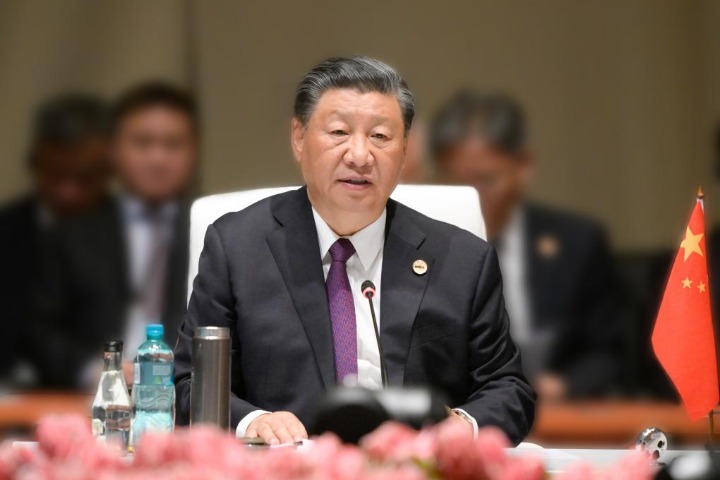
Full Text: Remarks by Chinese President Xi Jinping at the 15th BRICS Summit
China Daily)
BRICS no rival for G7 and G20, Brazil’s Lula says as bloc meets in Johannesburg
Firstpost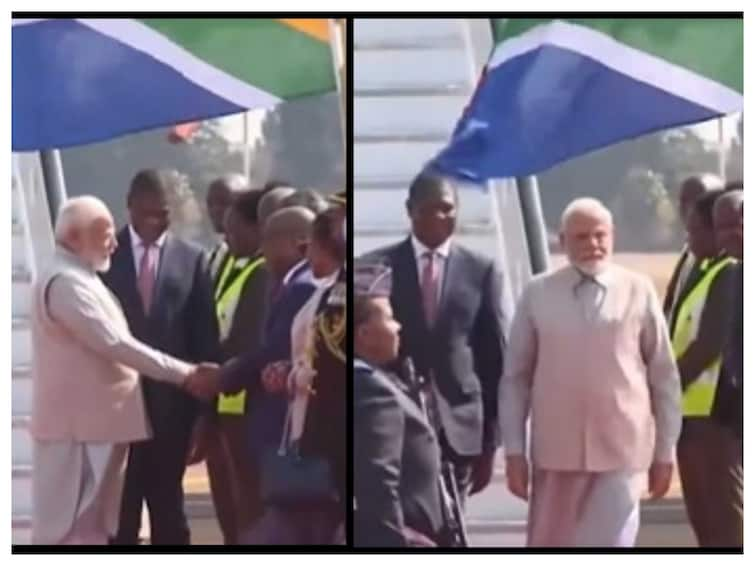
WATCH: PM Modi Receives Ceremonial Welcome In South Africa Ahead Of BRICS Summit
ABP News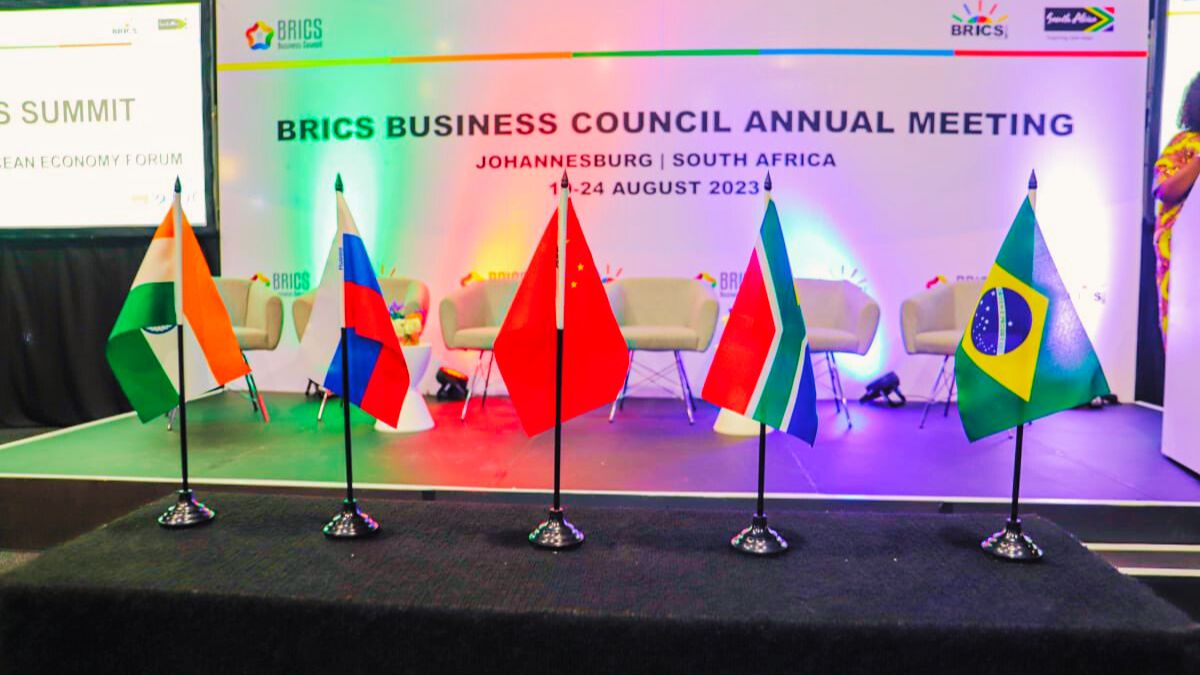
BRICS Summit: What leads to formation of group and which countries want to join it? Know here
India TV News
PM Modi leaves for South Africa to attend BRICS Summit
Deccan Chronicle
BRICS Summit 2023 highlights: India, a fastest-growing economy, will be growth engine of world, says PM Modi
Live Mint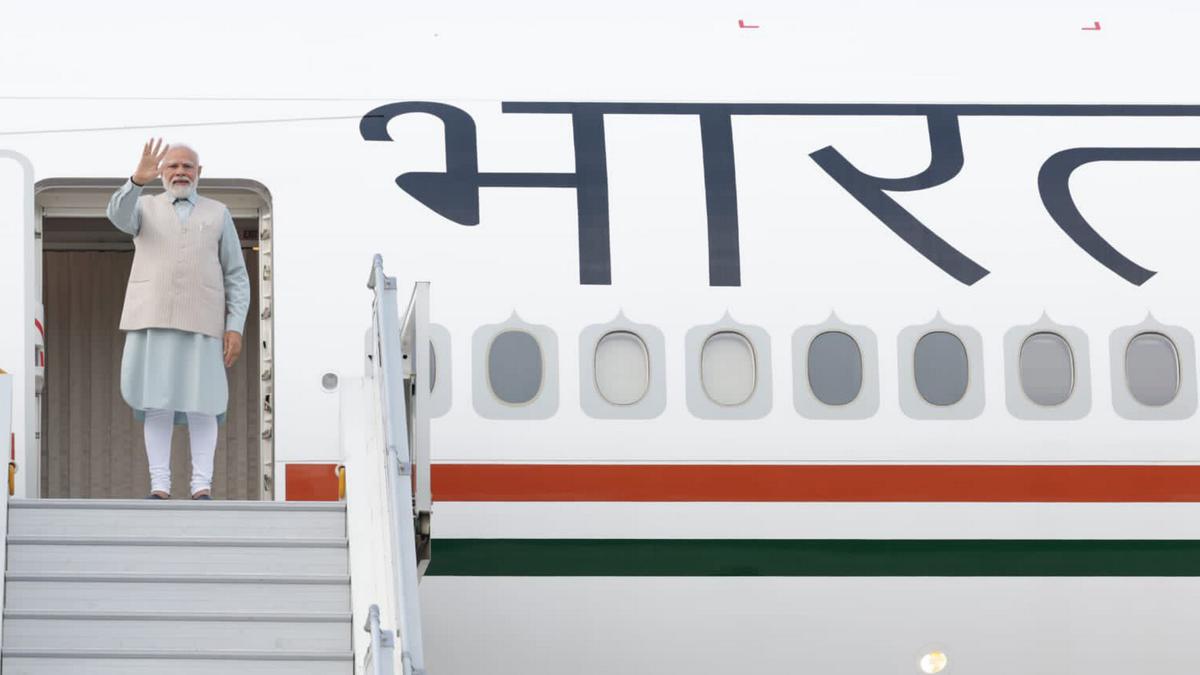
BRICS has become a platform for Global South: PM Modi
The Hindu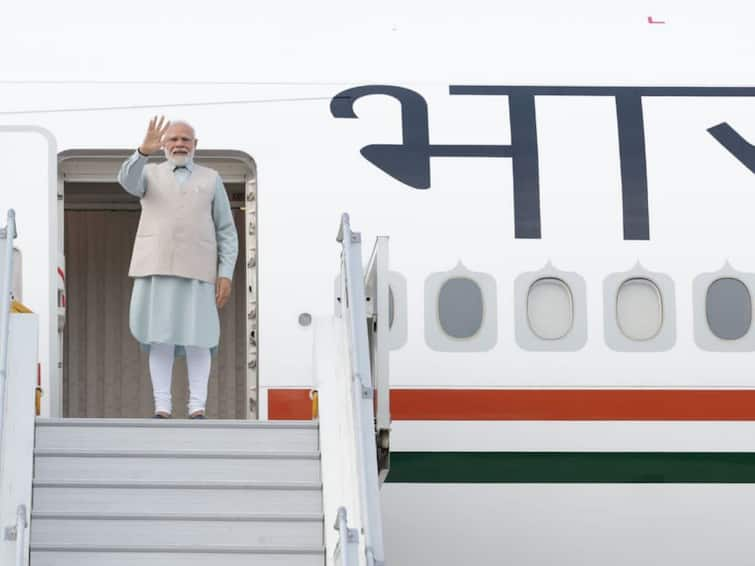
BRICS Summit 2023 PM Narendra Modi departs BRICS A Platform For Discussing, Deliberating On Issues Of Concern For Global South
ABP News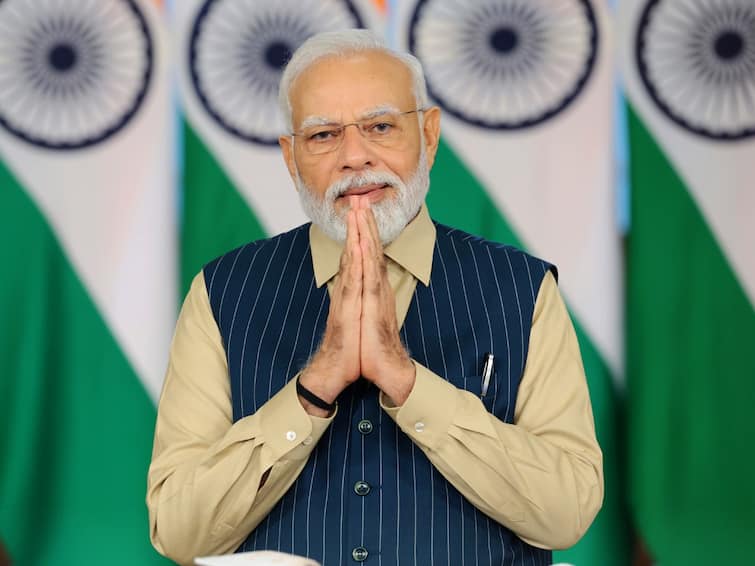
BRICS Summit: PM Modi Departs For Johannesburg — Check Schedule, Programme Details
ABP News
BRICS Summit: PM Modi departs for Johannesburg, issues statement. Details
Hindustan Times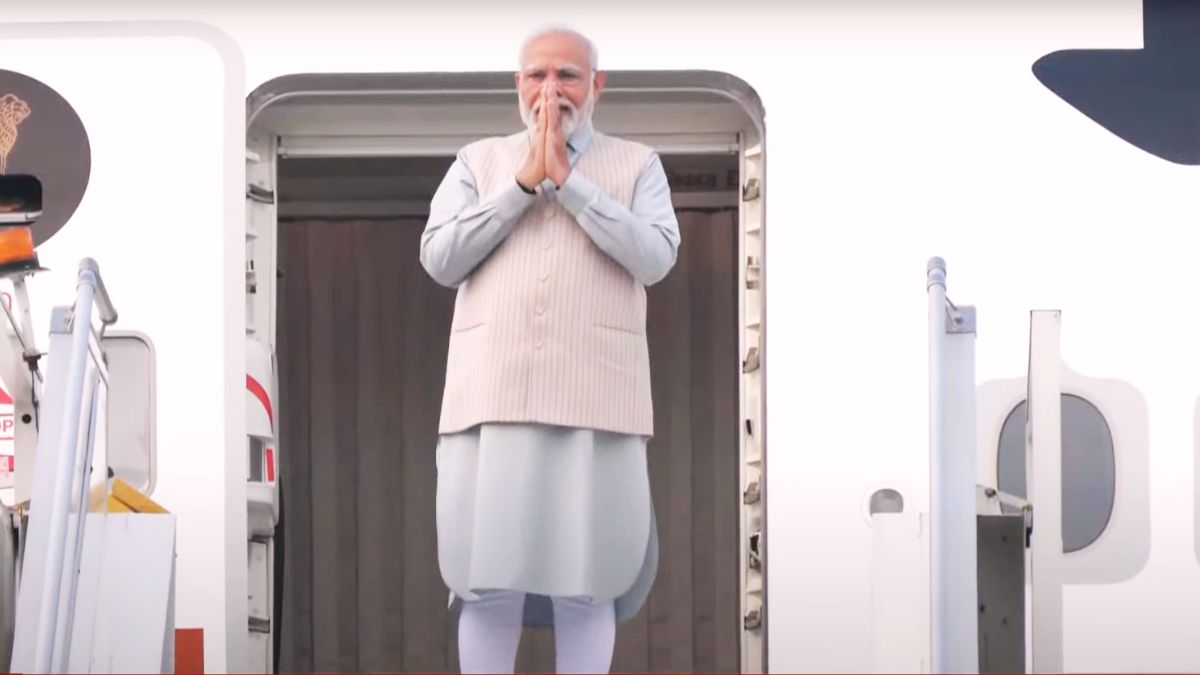
PM Modi departs for South Africa's Johannesburg to attend BRICS Summit I India's key expectations
India TV News
BRICS expansion could be a bad idea. Here’s why
Al Jazeera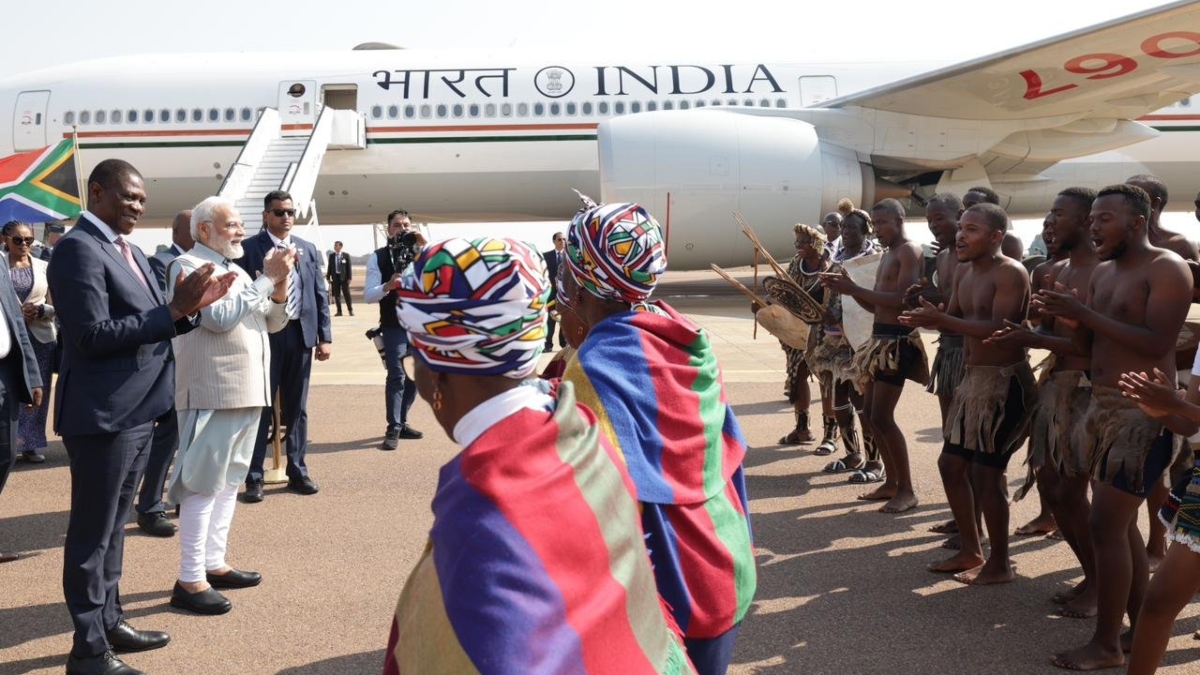
BRICS Summit 2023: Looking forward to meetings with world leaders, says PM Modi in South Africa's Johannesburg
India TV News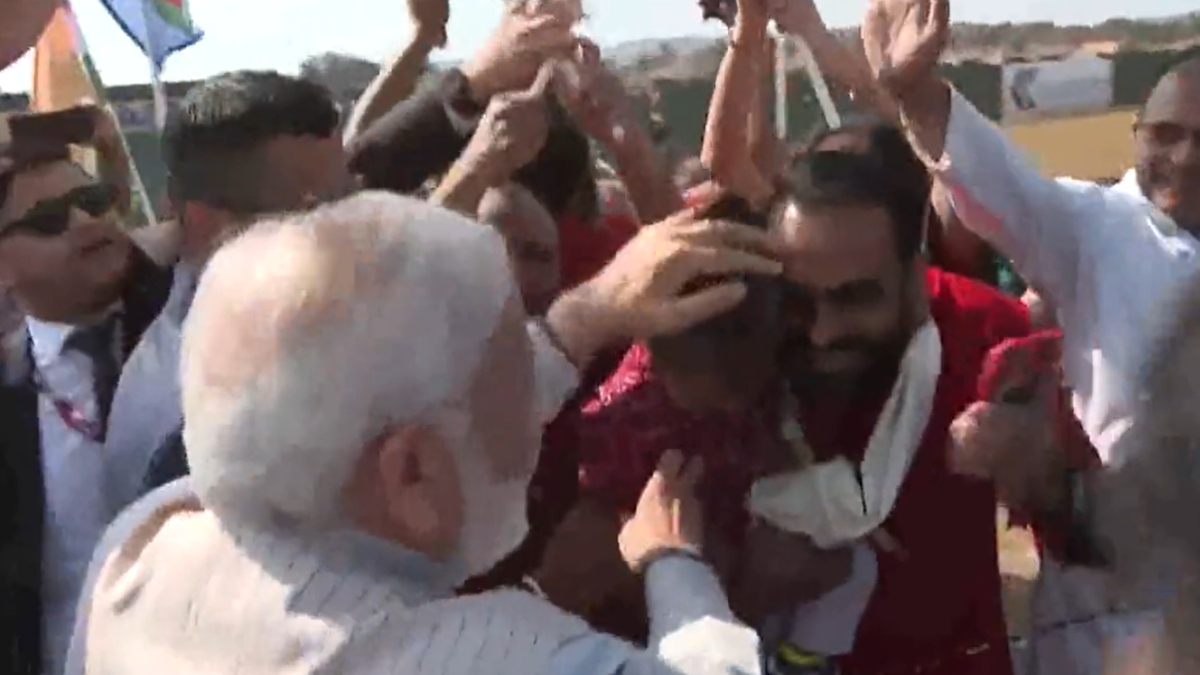
BRICS Summit: PM Modi gets rousing welcome from Indian diaspora in South Africa's Johannesburg | WATCH VIDEO
India TV News
Can BRICS end ‘apartheid’ against the Global South?
Al JazeeraDiscover Related
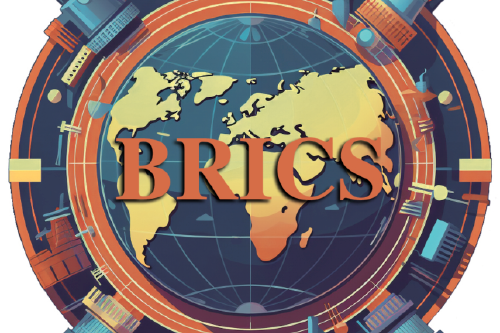
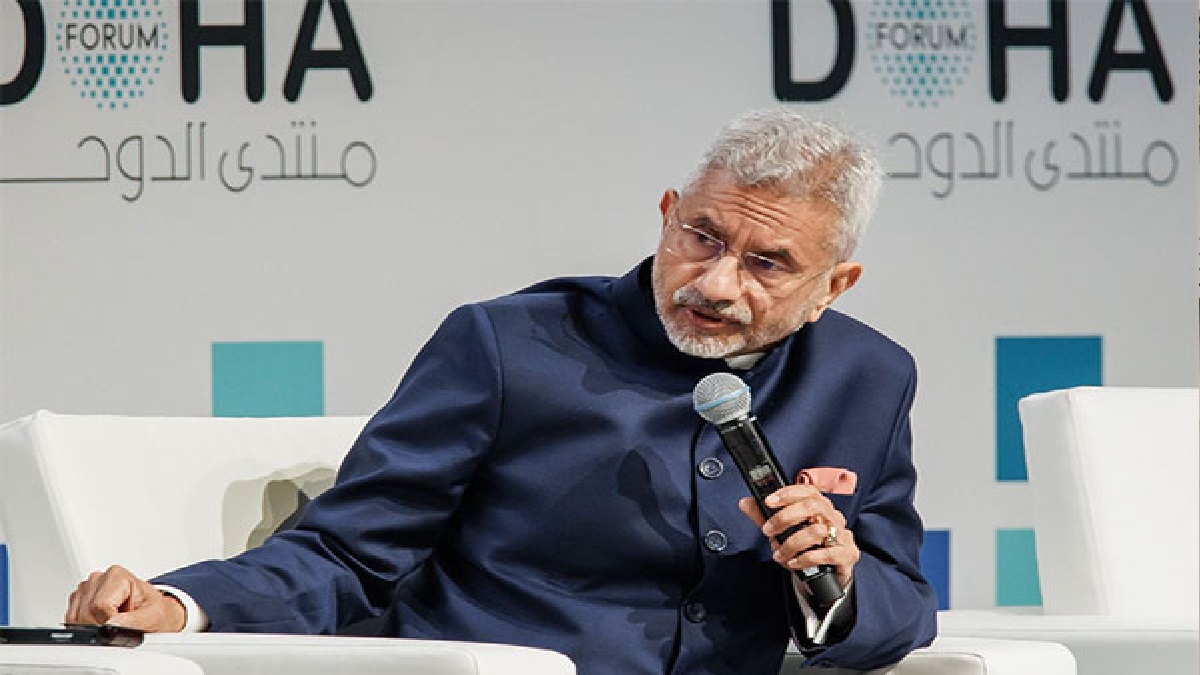


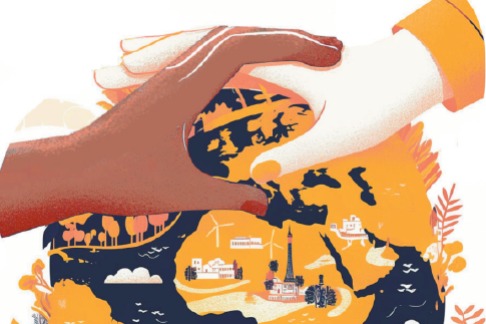

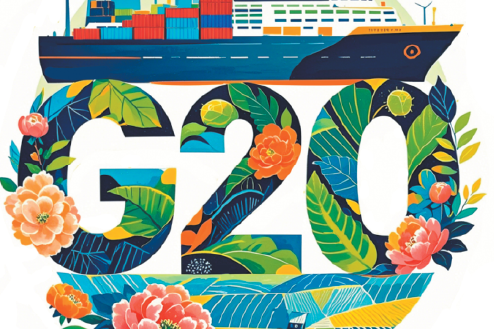


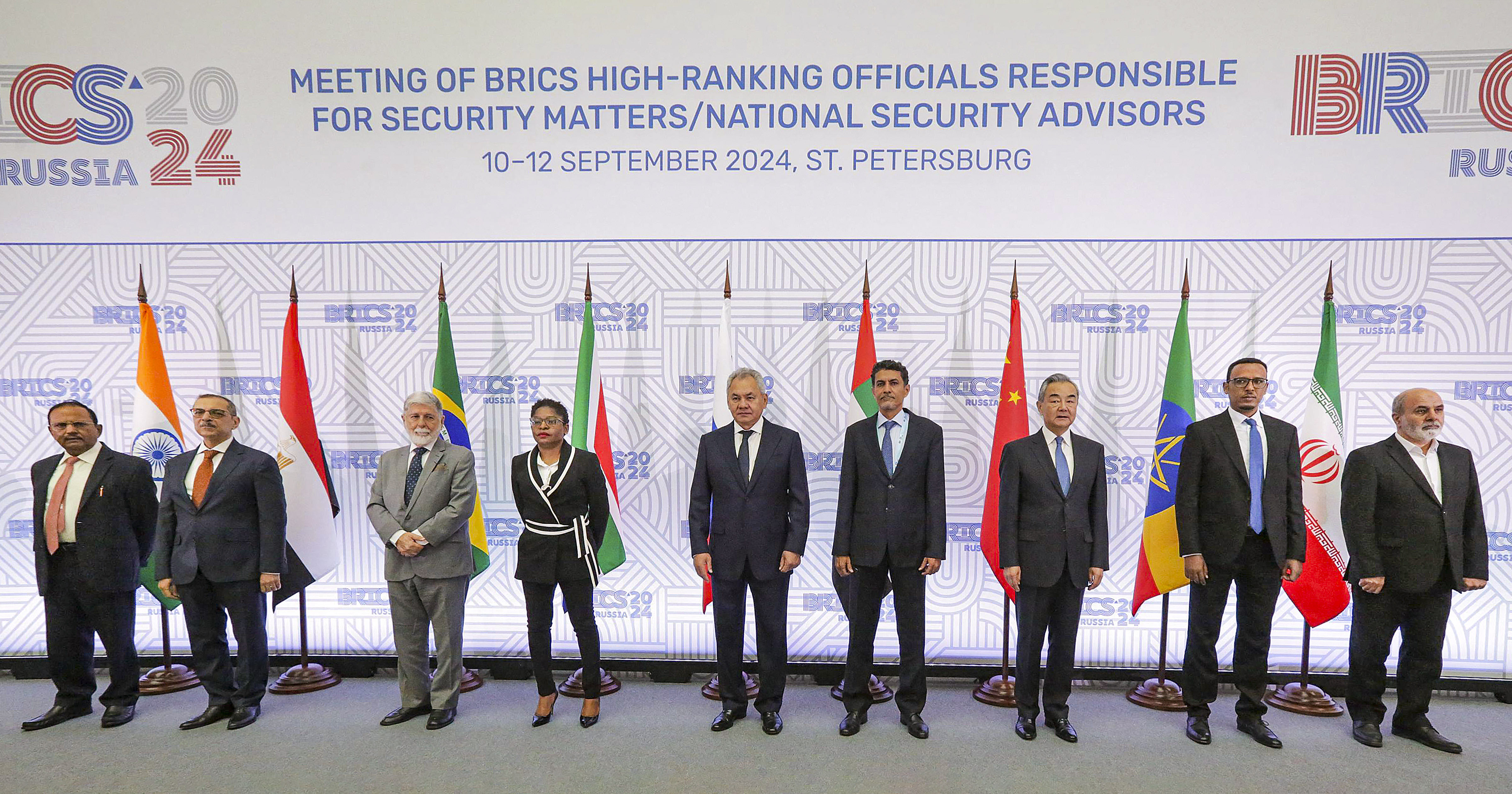






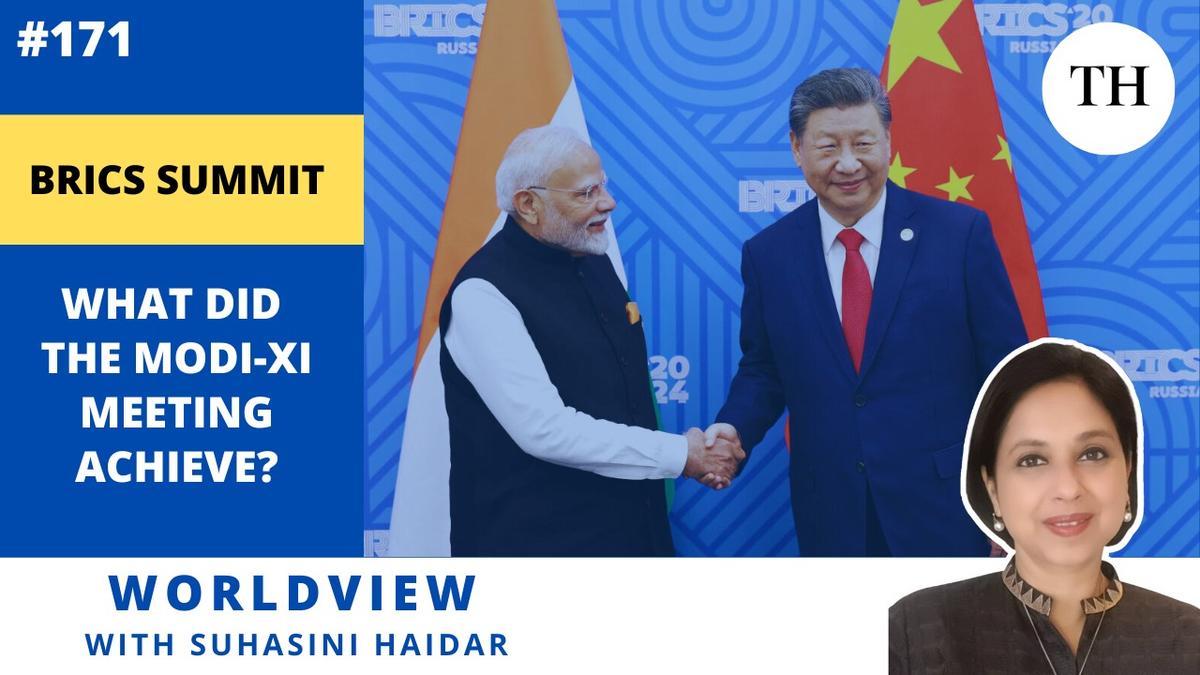
)

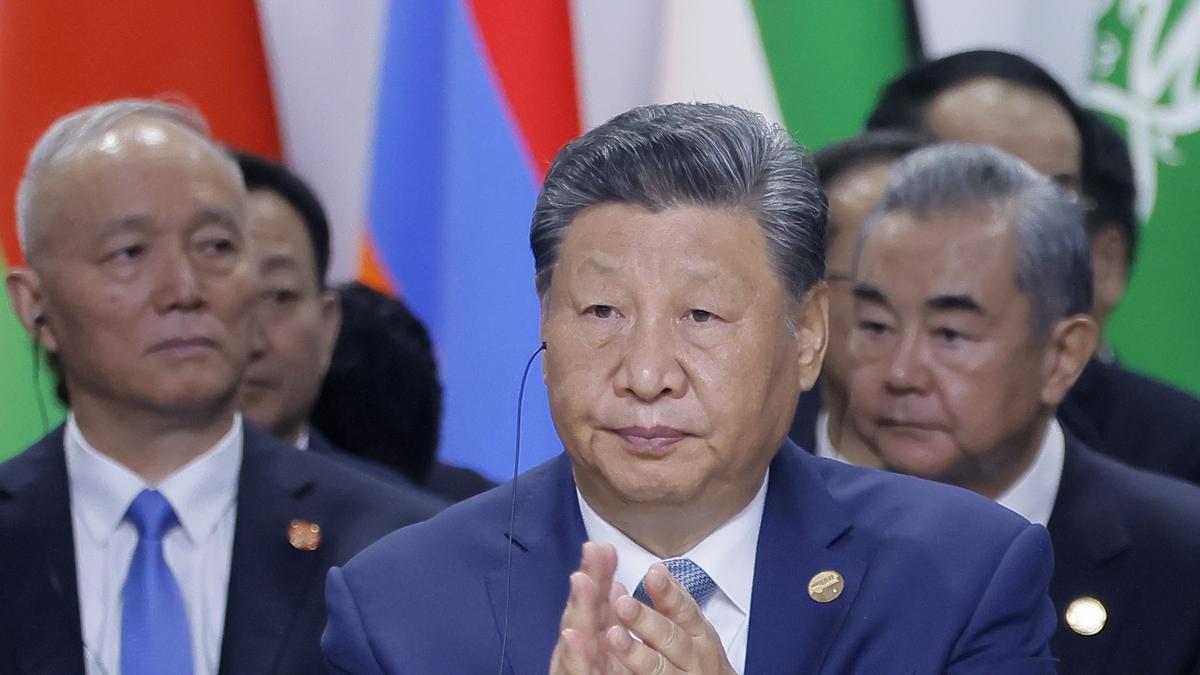


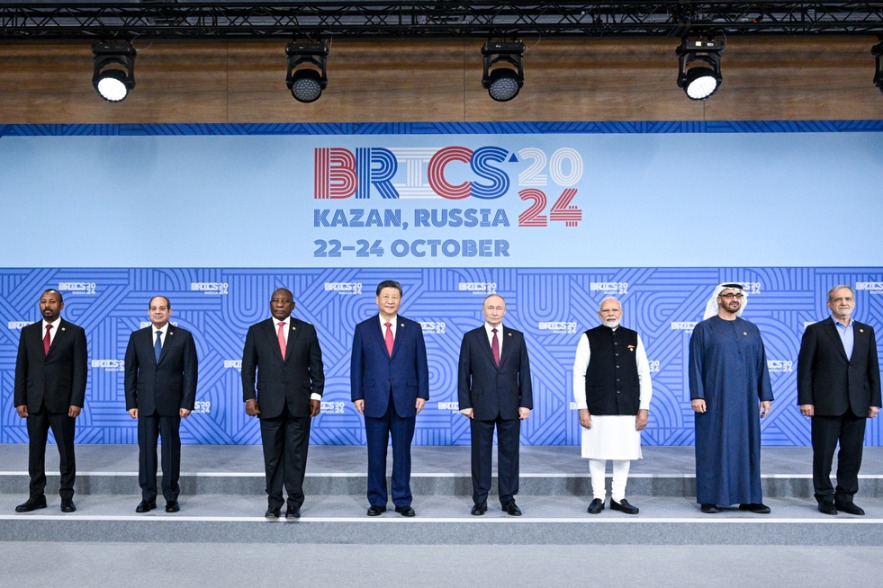
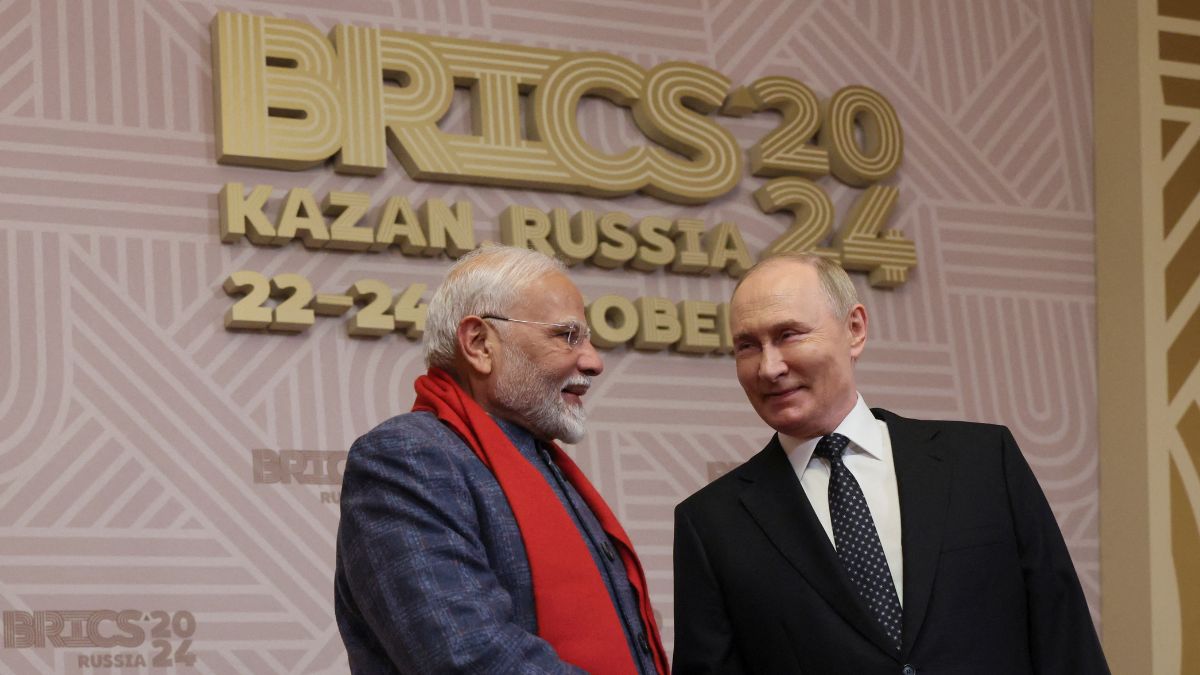)
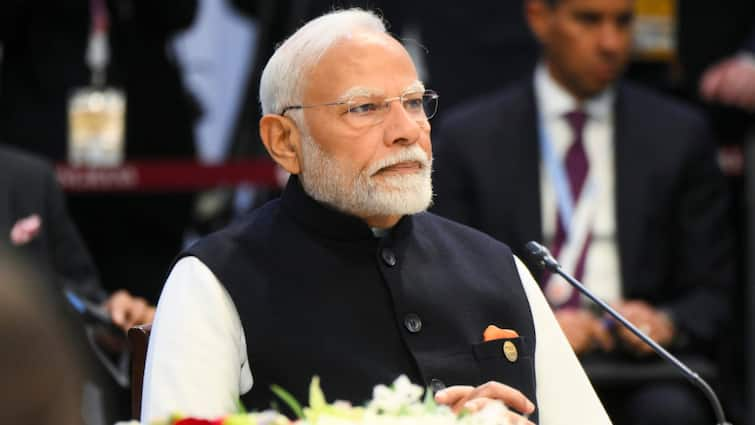
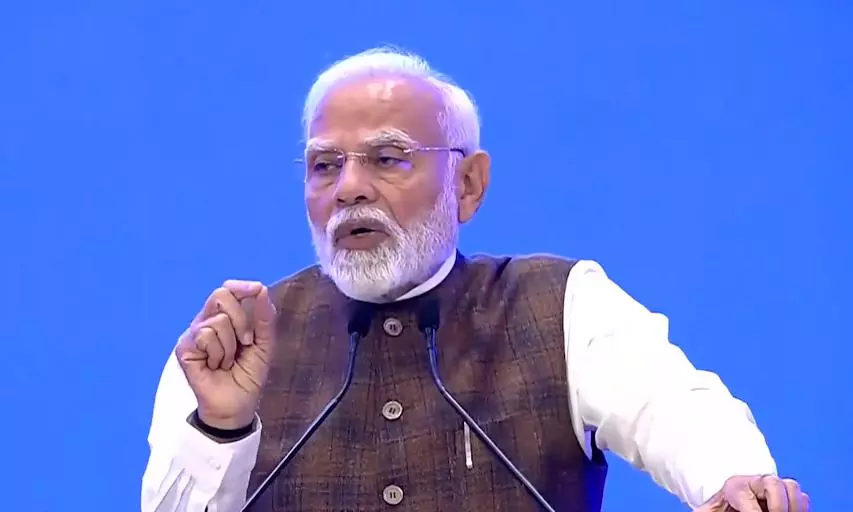


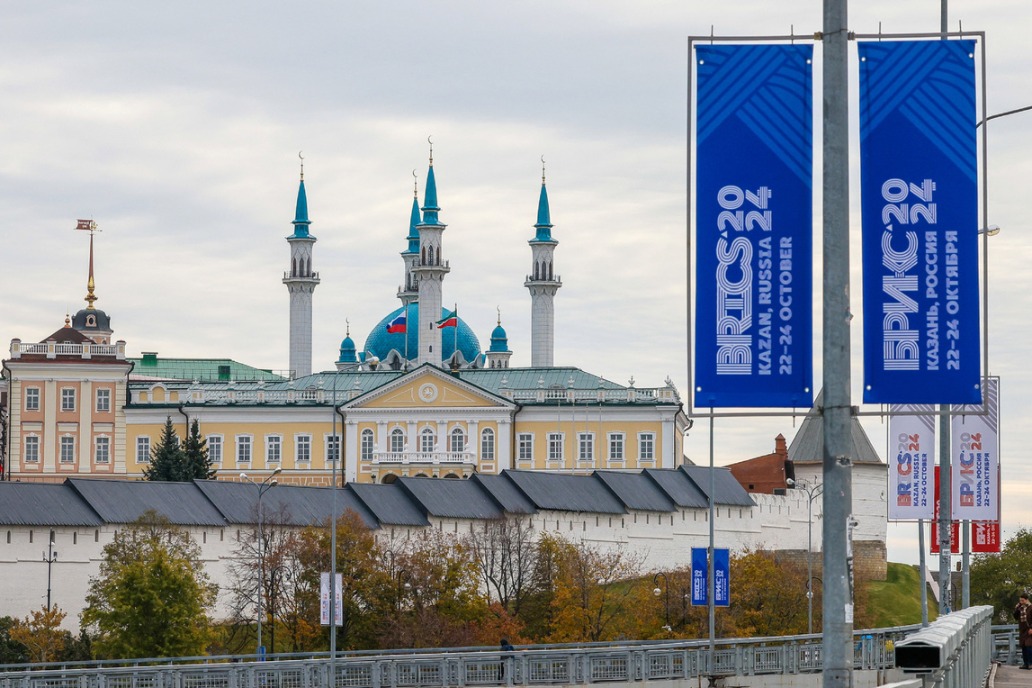

)
